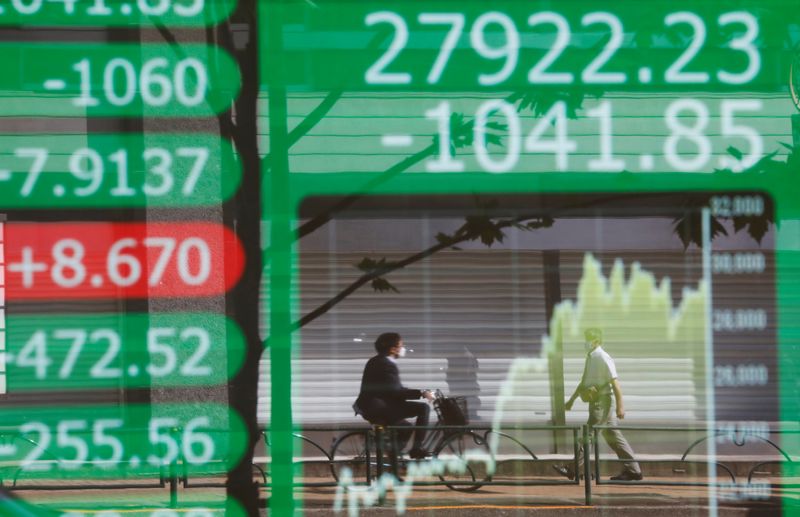Asian stocks see heavy outflows for second straight month in November
By Gaurav Dogra
(Reuters) - Asian stocks were under selling pressure from foreign investors for a second consecutive month in November amid worries over potential U.S. tariff hikes on regional exports under the incoming Donald Trump administration next year.
Foreigners net withdrew $15.88 billion out of equity markets in Taiwan, South Korea, India, Thailand, Indonesia, Vietnam and the Philippines, following a net $15.38 billion worth of sales in the prior month, LSEG data showed. It was their largest monthly net selling since June 2022.
"What we have seen in November is a reaction to Trump 2.0, where there are concerns that U.S. President-elect Donald Trump’s protectionist stance could mean a follow-through of his tariff threats, which may negatively impact Asian export-driven economies," said Yeap Jun Rong, market strategist at IG.
Last month, Trump pledged to impose significant tariffs on the United States' three largest trading partners, including China, a move that could impact regional exports heavily reliant on strong supply chains with China.
Chetan Seth, an analyst at Nomura, highlighted a bleak outlook for Asian stocks into 2025, attributing the pessimism to factors including impending tariffs, trade tensions, a potentially stronger USD, rising bond yields and less supportive monetary policies, compounded by China's delay in implementing anticipated stimulus measures.
Taiwanese stocks witnessed net foreign outflows of $8.41 billion in November, the biggest since April 2022. South Korean stocks also lost a hefty $3.21 billion, marking a fourth successive month of capital outflows.
A surge in the dollar after Trump's victory in the Nov. 5 election also dampened investor sentiment, as the dollar index reached 108.09, its highest level since Nov. 11, 2022.
Foreign investors net sold Indian stocks worth $2.56 billion after about $11.2 billion worth of net selling in October.
Indonesian, Vietnam and Thai shares also saw foreign outflows worth $1.06 billion, $461 million and $395 million, respectively.
"Looking ahead, risk remains with the tail scenarios where trade disruptions spill over more broadly," said Minyue Liu, a senior investment specialist at BNP Paribas (OTC:BNPQY ) Asset Management.
"However, positive factors such as US Fed’s and ECB’s rate cut, earnings recovery and resilient performance across EM assets, plus reasonable valuation, should help to attract some foreign flows into the Asia ex-Japan and the broader Emerging Market universe."
Source: Investing.com
